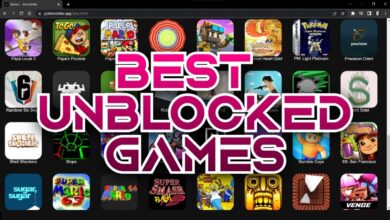In today’s digital age, game app development has become a lucrative and exciting field. With the increasing popularity of mobile gaming, mastering the art of game app development can open doors to endless opportunities. Whether you’re an aspiring game developer or an experienced programmer looking to expand your skillset, this comprehensive guide will equip you with the knowledge and tools needed to succeed in the competitive world of game app development.
Understanding the Basics of Game App Development
Game app development involves the creation of interactive software applications specifically designed for gaming purposes. It encompasses various aspects such as coding, design, graphics, sound, and user interface development. To excel in this field, one must have a strong understanding of programming languages, game engines, and software development principles.
Choosing the Right Development Platform
The first step in mastering game app development is selecting the appropriate development platform. There are several options available, including iOS, Android, and cross-platform development frameworks like Unity and Unreal Engine. Each platform has its advantages and limitations, so it’s essential to evaluate your project requirements and target audience before making a decision.
Exploring Programming Languages
Once you’ve chosen a development platform, the next step is to familiarize yourself with programming languages commonly used in game development. Languages like C#, Java, and C++ are widely used for building game apps due to their performance, versatility, and extensive libraries and frameworks.
Learning Game Development Frameworks
In addition to programming languages, mastering game development frameworks is crucial for efficient app development. Frameworks like Unity and Unreal Engine provide developers with pre-built components, tools, and resources to streamline the development process and create high-quality games across multiple platforms.
Essential Components of Game App Development
Successful game app development requires careful consideration of various components, including game mechanics, graphics, sound, and user experience.
Designing Engaging Game Mechanics
Game mechanics refer to the rules, interactions, and systems that govern gameplay. Designing compelling game mechanics is essential for creating engaging and immersive gaming experiences. Whether it’s puzzle-solving, strategic planning, or action-packed gameplay, well-crafted mechanics are the backbone of any successful game app.
Creating Stunning Graphics and Visuals
Visually appealing graphics play a significant role in capturing players’ attention and immersing them in the game world. From character design to environment modeling and animation, investing in high-quality graphics is crucial for making your game app stand out in the crowded app market.
Enhancing Immersion with Sound Design
Sound design is another critical aspect of game app development that often gets overlooked. Immersive sound effects, background music, and voice acting can enhance the overall gaming experience and evoke emotional responses from players. Incorporating sound strategically can bring your game app to life and create a more immersive and engaging atmosphere.
Optimizing for Performance and User Experience
In addition to design and development, optimizing your game app for performance and user experience is essential for success in the highly competitive app market.
Testing and Debugging
Testing and debugging are integral parts of the game development process. Conducting thorough testing across different devices and platforms helps identify and fix bugs, glitches, and performance issues early on, ensuring a smooth and seamless gaming experience for users.
Iterating Based on Feedback
Gathering feedback from beta testers and players is invaluable for refining and improving your game app. Pay attention to user reviews, comments, and suggestions to identify areas for enhancement and iterate on your game mechanics, graphics, and overall user experience accordingly.
Monetization Strategies
Once you’ve developed a polished and engaging game app, it’s time to explore monetization strategies to generate revenue. From in-app purchases and advertising to subscription models and premium upgrades, there are various monetization options available to developers. Choose a strategy that aligns with your target audience and game concept to maximize profitability.
Conclusion
Mastering the art of game app development requires dedication, creativity, and a willingness to continuously learn and adapt to new technologies and trends. By understanding the fundamentals of game development, leveraging the right tools and resources, and prioritizing user experience and engagement, you can create compelling and successful game apps that resonate with players around the world.




